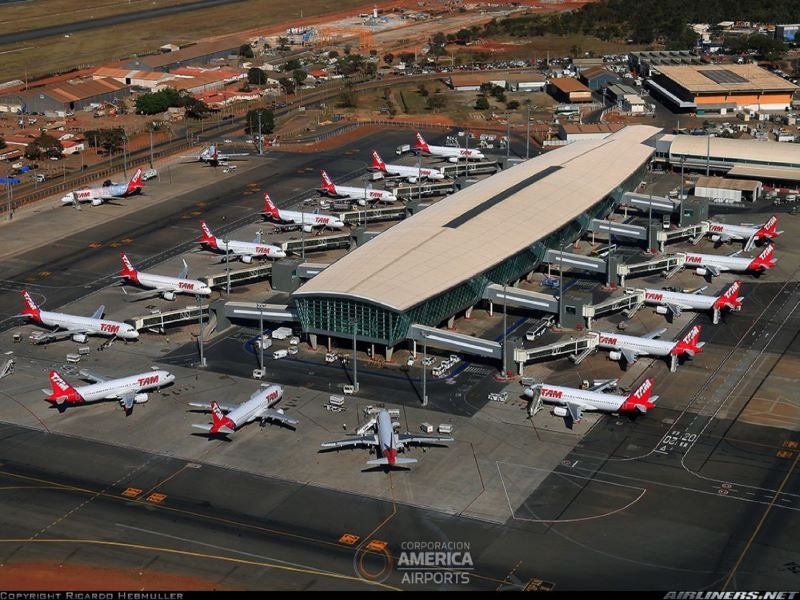
Corporación América Airports, the largest private sector airport operator by number of airports under management, has posted an attributable net income of $25.9m in the first quarter (Q1) 2022, versus a net loss of $44.1m in the same quarter a year earlier.
Revenues surged 86.8% to $258.1m, or 28.4% below the pre-pandemic levels from Q1 2019.
Operating income in the first three months of the year stood at $51.8m, compared with an operating loss of $26.6m in the year-ago quarter.
Adjusted EBITDA grew from $6.7m to $89.2m over this period.
With the lifting of travel bans, passenger volume soared 106.2% to 13.5 million. This is 65.5% of Q1 2019 levels, with Armenia, Ecuador and Brazil leading the traffic rebound.
Cargo volume grew 19.3% to 81 thousand tonnes, which is 77% of Q1 2019 levels. The growth was largely driven by Argentina, Brazil and Ecuador.
How well do you really know your competitors?
Access the most comprehensive Company Profiles on the market, powered by GlobalData. Save hours of research. Gain competitive edge.

Thank you!
Your download email will arrive shortly
Not ready to buy yet? Download a free sample
We are confident about the unique quality of our Company Profiles. However, we want you to make the most beneficial decision for your business, so we offer a free sample that you can download by submitting the below form
By GlobalDataAircraft movement in the three-month period ending 31 March was 156.4 thousand, 73.5% of Q1 2019 levels and 58.9% higher than Q1 2021.
Nearly 85% of aircraft movements in Q1 2022 were contributed by Argentina, Brazil and Ecuador, while in Armenia it rose to 96.7% of Q1 2019 levels.
Corporación América Airports CEO Martín Eurnekian said: “This performance was driven by a sustained pick-up in travel demand partially impacted by Omicron in January and February, tariff adjustments in some of our segments, together with a solid recovery in commercial revenues and a leaner cost structure.
“Traffic in Q1 2022 stood at 65% pre-pandemic levels, however, revenues ex-IFRIC reached 78% of those reported in Q1 2019.”



